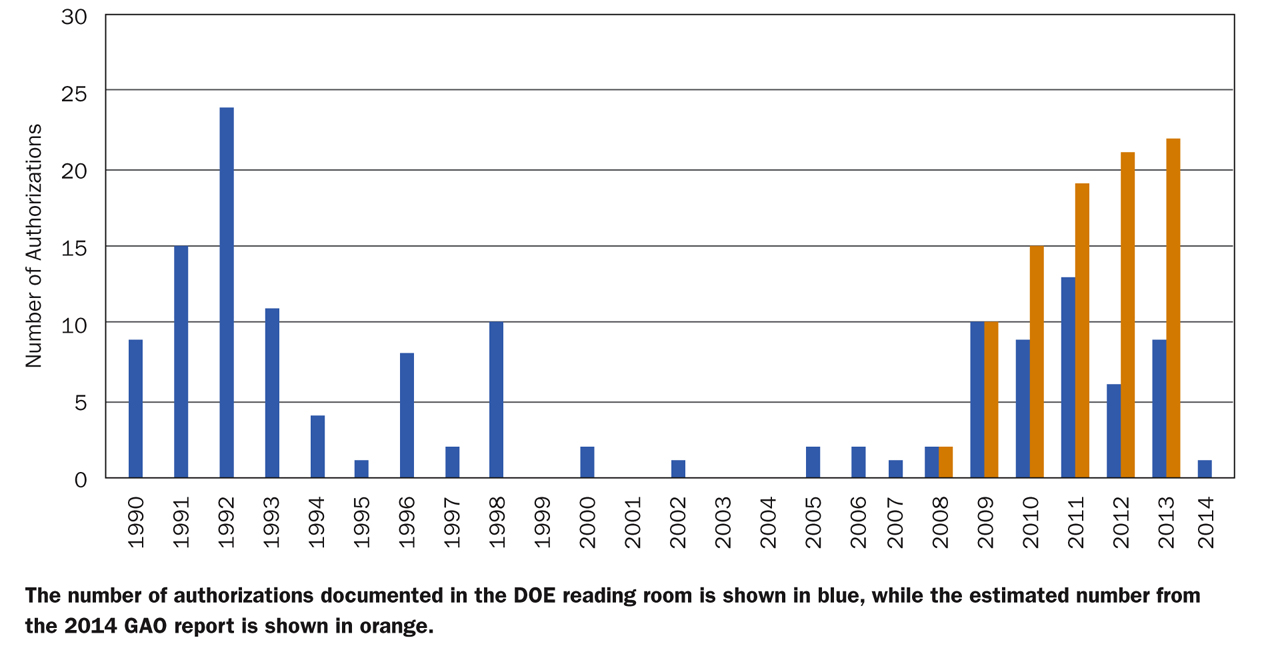The kingdom is currently reviewing bids from international companies to build two nuclear reactors. Westinghouse is leading the U.S. consortium competing for the contract against companies from China, France, Russia and South Korea.
U.S. companies need so-called Part 810 authorizations from the Energy and State departments to share non-public information as they attempt to convince the Saudis to choose American reactors and other services.
“I would speculate that they are much more about information and consulting services that would be valuable for a government that is going to make a decision in this field for the first time,” said Thomas Countryman, the former assistant secretary of State for international security and nonproliferation under President Barack Obama.
“It’s unlikely that these would have contained any sensitive information that would be helpful if the Saudi intention was to pursue nuclear weapons,” said Countryman, now the chair of the board of directors at the Arms Control Association.
Still, the export permissions are becoming public amid a standoff between Capitol Hill and the White House over U.S. relations with Saudi Arabia in the wake of Washington Post columnist Jamal Khashoggi’s killing by Saudi agents last fall.
Congress has sought to hold the kingdom’s powerful crown prince Mohammed bin Salman responsible for Khashoggi’s death. But President Donald Trump has stuck by his allies in Riyadh and cast doubt on the CIA’s assessment that the 33-year-old royal had a hand in the killing.
U.S. nuclear energy exports to Saudi Arabia have become a flashpoint in the dispute. While the Trump administration wants American companies to build the reactors, many lawmakers now say Saudi Arabia cannot be trusted with nuclear technology.
Rep. Brad Sherman, Democrat of California, suggested during a congressional hearing with Secretary of State Mike Pompeo on Wednesday that the transfers could put the Saudis on a path to developing nuclear weapons. He said the “secret” Part 810 authorizations appear to be part of the administration’s efforts to evade Congress and provide substantial nuclear technology and aid to the Saudis.
On Thursday evening, the Department of Energy confirmed that Secretary Rick Perry has issued seven Part 810 authorizations to export nuclear energy technology and services to Saudi Arabia.
The companies that received those authorizations opted not to disclose them to the public, fueling accusations of secret dealings.
Keeping the authorizations secret has only added to the considerable suspicions that Congress has about the Trump administration’s negotiations with the Saudis, said Countryman. He also believes the Trump administration has failed to adequately notify Congress of progress on nuclear cooperation with the kingdom.
“If there is a smart deal to be made with the Saudis for selling U.S. reactors, and if you want to see it supported by Congress, you have to go the route of transparency versus secrecy,” Countryman said.
But it’s not unusual for companies to exercise the option to keep their authorizations private. A recent study for the Nuclear Innovation Alliance showed that between 2008 and 2013, companies often chose not to disclose their Part 810 agreements.
Total part 810 authorizations (orange) vs. authorizations made public (blue)

Nor is it unusual for an administration to grant Part 810 authorizations prior to a formal agreement to sell nuclear equipment, says Matt Bowen, the author of the study and a former Energy Department official during the Obama administration.
“The 810 is kind of sticking the toe in the water for these conversations responding to power reactor requests for information,” said Bowen, who served as associate deputy assistant secretary in the Office of Nuclear Energy from 2015 to 2017.
“To actually sell and build a U.S. reactor in another country would involve additional agreements and licensing decisions on the part of the U.S. government.”
That includes a 123 Agreement, which the U.S. must reach with a foreign government before American companies can sell nuclear material, equipment and components overseas. These agreements are not uniform, but they do contain nine requirements meant to assure U.S. nuclear technology is only used for peaceful purposes.
The State Department recently announced it will expand cooperation with countries pursuing atomic energy long before they’re ready to sign a 123 Agreement. The new policy aims to counter Russia and China’s aggressive nuclear energy deal-making as more nations around the world consider importing reactors.
from Best News Update https://ift.tt/2JOgFql

0 Comments